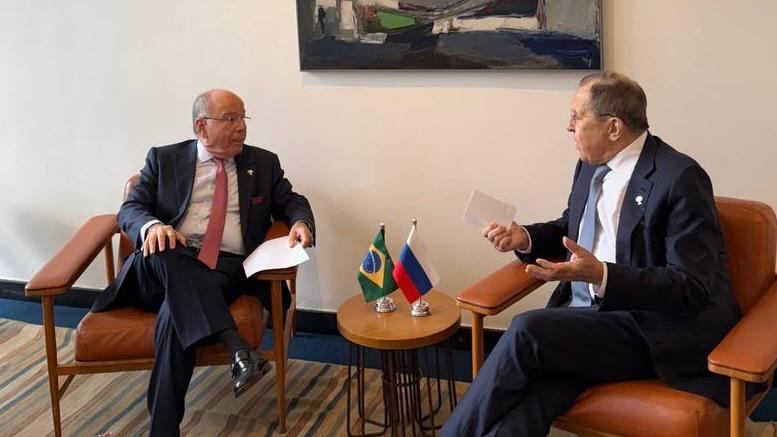Sergey Lavrov at BRICS Summit 2025:At the BRICS Summit 2025 in Rio, Russian Foreign Minister Sergey Lavrov emphasized fair climate action, energy transition without discrimination, and BRICS-led reforms in global healthcare and the WHO. Read full highlights.
Sergey Lavrov at BRICS Summit 2025: Russia Calls for Fair Climate Finance and WHO Reforms
At the 3rd session of the XVII BRICS Summit held in Rio de Janeiro on July 7, 2025, Russian Foreign Minister Sergey Lavrov addressed critical global issues ranging from climate change and energy transition to international healthcare reform. His remarks highlighted Russia’s commitment to balanced, inclusive, and cooperative approaches on both environmental and health fronts, underlining the importance of strengthening multilateral institutions and promoting equitable development.
Lavrov welcomed the global shift toward more pragmatic energy transition strategies that respect the diversity of national conditions and energy resources. He emphasized that such efforts should not discriminate against any energy technologies, especially if doing so undermines the socioeconomic development of nations. Lavrov also pointed out that unilateral sanctions continue to pose significant hurdles to the implementation of the Paris Agreement, particularly in developing countries.
He reiterated Russia’s adherence to the national emissions reduction target approved by President Vladimir Putin in 2020. Lavrov detailed the country’s current efforts, including reducing greenhouse gas emissions, improving energy efficiency, introducing innovative technologies, and promoting energy conservation. As part of this vision, Russia aims to achieve carbon neutrality by 2060 under its Climate Doctrine.
Speaking on the outcomes of COP29 held last year in Baku, Lavrov expressed support for the conference’s focus on creating a new collective climate financing goal. He praised the final agreement for including specific resource allocation targets, despite what he described as Western reluctance to take responsibility for past failures to support the Global South.
He also echoed sentiments expressed by Egypt’s Prime Minister, urging that promises—such as the unfulfilled $100 billion annual climate finance pledge—should not remain symbolic but be met with tangible action.
Lavrov underlined the necessity of scaling up both funding and technology transfer to developing nations to enable their meaningful contribution to global climate goals. He stressed that the new Declaration, issued under Brazil’s BRICS presidency, strengthens cooperation on climate and sustainable development, and sets the stage for the upcoming COP30 in Berlin this November.
In his speech, Lavrov also addressed the evolving global health landscape. He reflected on the 2015 BRICS Summit in Ufa, which had already identified health cooperation as a strategic priority. The COVID-19 pandemic further reinforced this, prompting BRICS countries to begin building an early warning system for infectious disease outbreaks.
Lavrov proposed a collective BRICS initiative to reform the World Health Organisation (WHO), aimed at refocusing the organisation on its core mandate of disease control and health protection. He criticized the attempts by some nations to use the WHO for geopolitical advantage, especially in the field of biotechnologies, and called for safeguarding its neutrality.
He also emphasized the need to use WHO platforms to showcase successful BRICS health initiatives. These include the BRICS Vaccine Research and Development Centre, research networks targeting tuberculosis and public health, and Brazil’s proposed framework for combating socially determined diseases. Additional areas for cooperation identified by Lavrov included nuclear medicine, cancer diagnostics, radiopharmaceuticals, medical isotopes, and healthcare workforce training.
Lavrov noted that Russia continues to support healthcare development in Africa, including setting up laboratories and vaccine production facilities in 15 countries across the continent.
In conclusion, Lavrov announced that international drills for rapid-response epidemiological teams will take place in Kronstadt, near St. Petersburg, this September. He extended an open invitation to all BRICS partners to participate in the exercises, which aim to boost preparedness for future global health emergencies.
Lavrov’s remarks underscore a broader BRICS push for multipolarity, fair climate responsibility, and resilient health systems—pillars that the bloc sees as essential for a stable and equitable global order.
Disclaimer:
This article is for informational and educational purposes only. It does not constitute any official position or policy recommendation. Readers are advised to refer to official government releases and multilateral institutions for authoritative updates.

